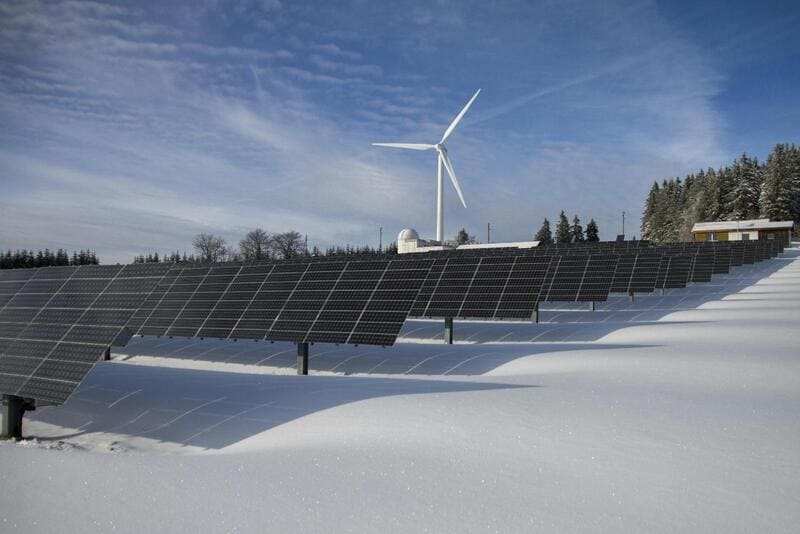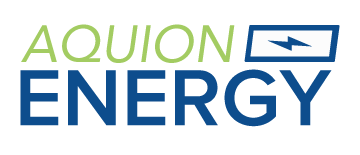Career Opportunities in the Renewable Energy Sector
Renewable energy has recently become a major concern in energy production due to the global climate change crisis. It has led to an unprecedented shift in energy utilization options as renewable energy has many advantages compared to the existing ones. These advantages include reduced carbon emissions, reliability, and lower energy costs, to name a few.

This has led to many career opportunities in the renewable energy sector, particularly in production, manufacturing, and distribution. Read on to familiarize yourself with what is renewable energy and the available career options in this industry.
Contents
Types of Career Opportunities in the Renewable Energy Industry
Renewable energy production depends on natural earth sources, like wind, water, and sunlight, that provide clean energy sources. Its mass adoption across various parts of the world has provided numerous jobs, including:
Electric Technicians
Technicians highly regard renewable energy career opportunities as they are involved in installation, production, repair, and maintenance operations. The good thing is that many online platforms allow you to review the available electric technicians’ jobs worldwide. We looked at Jooble technician job opportunities and were quite impressed by their widespread availability. You can look for specific job interests by utilizing search terms like full-time, apprenticeship, Visa sponsorship, and local area.
Electrical technicians’ most prominent job opportunities include solar installation, maintenance of electric equipment, and reading and interpreting electric technical diagrams. These roles are quite diverse based on the different renewable energy sources.
Sustainability Engineer
Sustainable engineers are responsible for designing renewable energy facilities without negative environmental impact. The main focus is to inhibit pollution, reduce waste, and craft long-lasting renewable energy sources. In addition, sustainable engineers aim to create energy sources that will benefit future generations. That’s why this renewable energy job opportunity has witnessed increased demand in recent years. Here are other roles in this opportunity:
- Collaborating with urban planners and other practitioners in promoting sustainable practices
- Developing proper waste management approaches
- Crafting renewable engineering projects that are environmentally friendly
- Assisting engineers in designing sustainable renewable energy sources
Energy Manager
As the name suggests, energy managers’ main role is to control energy usage in facilities and organizations. They execute these roles by identifying numerous options that enhance energy efficiency with minimal waste. They are also involved in awareness programs that enlighten the community on using energy sources that save energy. This happens by disseminating technical advice and training on energy efficiency.
The greatest concern that energy managers major in nowadays is carbon management. This is because carbon has become a key aspect of global climate change. Energy managers mostly work in the field and offices and may be required to submit reports based on the nature of their working environment.
Urban Planner

Urban planners in the renewable energy sector design plans that offer optimal energy utilization and distribution. They collaborate with government organizations, builders, and engineers to provide geographical plans that align well with homes, public utilities, and transport infrastructure. Urban planners consider factors like population growth and land management to ensure these renewable energy options bring the best results.
Certifications required in urban planning include public policy and project management, among other related fields. This is because they are required to execute on-site analysis to determine community factors before recommending the most appealing energy designs. In addition, they research to ensure emissions from these energy production firms do not affect the people living nearby.
Environmental Scientists
Environmental scientists have a professional grasp of natural sciences, which helps them analyze existing environmental problems and determine how to counter them. It is quite essential in protecting human health while minimizing environmental hazards. They mostly work in laboratories and offices after gathering data and information that helps monitor the environment.
This role is important in renewable energy production as it focuses on energy conservation. Other roles performed by environmental scientists in renewable energy production include:
- Cleaning up polluted areas to minimize further environmental degradation
- Collaborating with renewable energy production firms to manage waste
- Collecting samples from water, soil, and air for scientific analysis
- Providing information to government organizations responsible for mitigating environmental hazards
System Integration Technology Manager
The main roles of system integration technology managers are to monitor and control project performance. This benefits renewable energy utilization by enhancing quality and compliance in diverse energy systems. They ensure that various systems in a particular energy production firm and all its distribution channels meet industry-standard documentation and specifications. By doing so, system integration technology managers boost the benefits of using renewable energy compared to other unnatural energy sources.
These managers are required to have certifications in system integration and project management. Such certifications ensure system integration managers have skills like design, architecture, testing, and technical expertise. They should also have the methodologies and tools required to efficiently operate vast technology systems in renewable energy production.
Types of Renewable Energy Sources
As stated earlier, renewable energy production utilizes the earth’s natural sources to present clean energy. There are several renewable energy sources, as articulated below:
Solar
This is among the most utilized energy sources that convert sunlight into electrical power. Not only does it provide a clean source of energy, but it is also relatively cost-efficient. It is also more accessible, especially in areas that receive adequate sunlight annually. Nowadays, sophisticated solar PV technologies have led to the production of solar panels that generate electricity even in low sunlight.
Wind

Wind energy has long been used to produce electrical energy due to its cost-effectiveness, easily accessible, and the production of clean energy. The energy is produced using wind turbines connected to a drive shaft to generate electric energy. This simple energy production mechanism has led to offshore wind energy production due to the strong wind currents present at sea.
Biomass
This is a type of renewable energy source that utilizes organic matter like algae and plants. Although it is not as efficient as solar and wind, biomass has been highly embraced by people with access to organic matter. It has also diversified in recent years due to the inclusion of bioethanol and biodiesel, which have showcased a significant reduction in carbon emissions.
Hydropower
Hydropower energy production utilizes flowing water from rivers, streams, and reservoirs to spin turbines that generate electric power. It is considered the largest clean energy source worldwide due to its widespread adoption.
